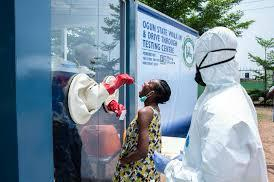
With this week's news that Pfizer and BioNTech will begin production of the COVID-19 vaccine in South Africa, the continent's long-term recovery from the pandemic looks to be far brighter than previously thought. Yet vaccination rates across Africa remain low, with the World Health Organisation stating that only 1.5% of the total population have been fully vaccinated. With warnings of a new variant sweeping the continent, questions are being asked as to what the best combination is to administer the existing vaccines available to African governments, as well as ensuring that a consistent supply of new vaccines is delivered to the countries that need it the most.
The Biden administration is expected to deliver 25 million vaccine doses to African countries in the coming weeks, helping to shift some of the surplus enjoyed by rich nations who have bought up far more than they reasonably expect to use, to lower-income countries which desperately need greater supply. Although initially these were distributed by Covax, a global partnership, export restrictions on the AstraZeneca vaccine imposed by India earlier this year meant that these deliveries dried up.
Yet some voices from within the continent have suggested that supplying the vaccines is only half of the picture. Raising awareness of preventative measures, they say, is crucial to ensuring Africa emerges stronger from the COVID-19 pandemic. Zimbabwean epidemiologist Dr. Grant Murewanhema says that "various awareness campaigns by different stakeholders in public health, government or non-government" have increased the build-up in vaccine confidence, and that this in time, has led to growing confidence amongst the public and an uptake in demand for vaccines.
This has been the preferred approach of the International Federation of Red Cross and Red Crescent Societies (IFRC) which has been steadily stepping up surveillance, testing and COVID-19 awareness campaigns in public places, such as markets and border points. These campaigns, they say, are crucial to containing the spread of the virus, even if they are expensive and difficult to administer.
Dr. Thulani Mhlanga, Medical Manager for Vaccines at Pfizer South Africa, has also raised similar concerns. He says that raising awareness and busting misconceptions that locals may have is essential to ensuring those most in need receive their vaccinations. Veronica Ueckermann, an adjunct professor in Internal Medicine at the University of Pretoria, says that the South African government could do much more to raise public awareness and dispel myths at the community level.
But there are some who suggest that awareness can be raised without the launch of full-scale campaigns by governments or large organisations, instead suggesting that everyone can do their bit to educate people on good habits and practices to prevent the spread of the disease.
One example is Mirco Martins, an Angolan entrepreneur who founded Grupo Vernon as well as the non-profit Kuculá Foundation, who has called for nonprofits to raise awareness of public health preventative measures, including physical distancing, hand hygiene, respiratory etiquette, proper mask use and awareness of the role of ventilation. He joins pan-African telecommunications operator MTN Group in a chorus of private sector voices encouraging people to wear masks, wash their hands and practise social distancing. The company recently joined forces with Africa Centres for Disease Control and Prevention (Africa CDC) to launch the "One More Push" campaign, a renewed drive to encourage the public to adhere to the preventative measures to stop the return of the pandemic. The campaign follows the company's collaboration to rollout COVID-19 vaccines to health workers across the continent through a $25 million donation.
Lockdowns and social distancing measures have been proven to greatly reduce the spread of the virus, particularly in countries where large numbers of the population remain unvaccinated. Yet fear and scepticism, as well as ignorance, can mean that even the most effective of measures fail to reach their full potential. For Africa to move forward from the COVID-19 pandemic once and for all, the right balance of supplies and education must be struck. The more voices that call out, the louder, stronger and more effective the chorus.









